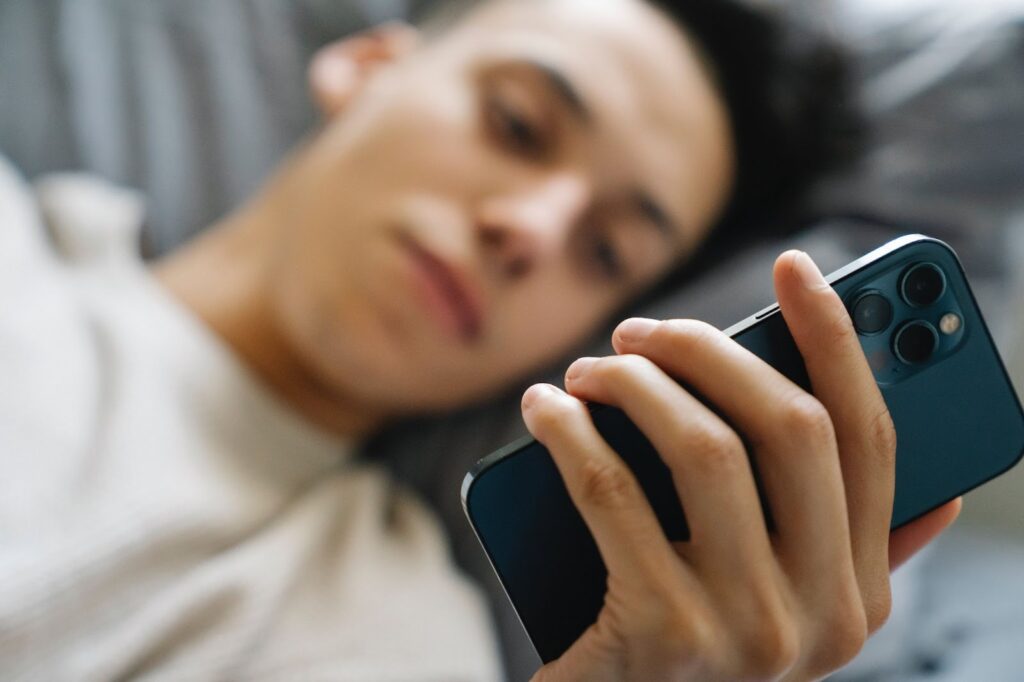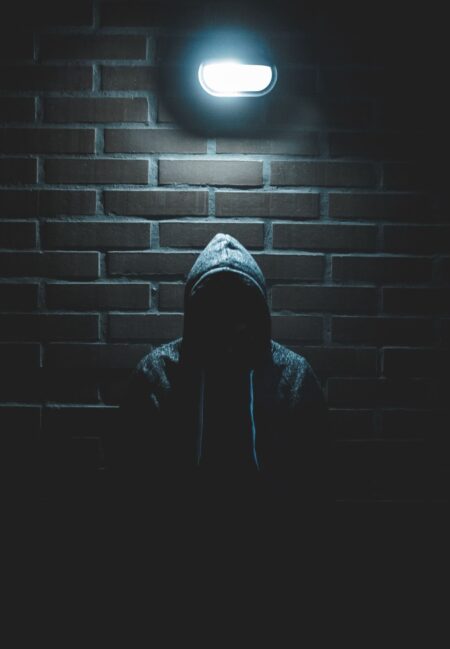With screens becoming almost an extension of ourselves, it’s crucial to explore the psychological dynamics of this relationship. How does the brain react to prolonged exposure to digital devices, and what are the repercussions for our sleep patterns?
Table of Contents
The Intricate Link Between Screen Time and Sleep Quality
In the digital age, the relationship between screen time and sleep quality has become a focal point of health concerns. The increasing dependency on digital devices has significantly altered our sleep patterns, and recent sleep statistics paint a worrying picture.
Studies indicate a direct correlation between the rise in screen time and a decline in both the quality and quantity of sleep. This phenomenon is not merely a coincidental trend but is deeply embedded in how our brains interact with and process the light and information emanating from screens.
Understanding the Role of Blue Light
One of the critical factors in this relationship is the emission of blue light from digital screens. Blue light plays a disruptive role in our natural sleep-wake cycles, or circadian rhythms. It significantly suppresses the production of melatonin, a hormone that signals to our bodies when it’s time to sleep.
This suppression can lead to various sleep-related issues. When we expose ourselves to screens, especially in the evening hours, it can trick our brain into believing it is still daylight, causing difficulties in falling asleep and a decrease in the overall quality of sleep.
The impact of blue light is not limited to adults; children and adolescents, who are increasingly exposed to screens, are also affected, leading to concerns about their developmental and sleep health.
Cognitive Stimulation and Its Impact on Sleep
Beyond blue light, the content and nature of screen time, particularly before bed, contribute to sleep disturbances. Engaging with digital content, whether it’s browsing social media, playing video games, or even reading emails, can lead to cognitive arousal.
This heightened state of mental activity makes it challenging for the brain to wind down and transition into sleep mode. The result is a delayed onset of sleep, shortened sleep duration, and overall reduced sleep quality.
This form of cognitive stimulation is particularly concerning as it not only affects the quantity of sleep but also its restorative quality, impacting both mental and physical health.
The Psychological Effects of Excessive Screen Time on Sleep
The implications of prolonged screen time extend beyond the physical aspects of sleep, significantly impacting psychological well-being. It’s essential to understand and address these effects to mitigate the sleep-related issues that stem from digital overload.
The Anxiety-Sleep Cycle
Excessive screen time, and particularly the use of social media, has been linked to increased levels of anxiety and stress. This heightened state of mental arousal, especially before bedtime, can severely disrupt normal sleep patterns.
The resulting sleep deprivation can exacerbate feelings of anxiety, leading to a vicious cycle where anxiety leads to sleep loss, and sleep loss further fuels anxiety.
This cycle can have a profound impact on overall health and well-being, making it crucial to manage screen time effectively to break this loop.
Stress and Sleep During Times of Crisis
In times of crisis or high stress, such as during global events or personal upheavals, there is a natural inclination to stay connected and informed through digital devices. However, the constant exposure to often stressful or disturbing news can significantly exacerbate sleep disturbances.
This situation is compounded by the fact that during these periods, people are more likely to increase their screen time in search of updates or distractions, inadvertently impacting their sleep.
Balancing the need to stay informed with the necessity to disengage from screens becomes crucial. Setting boundaries for media consumption, especially before bedtime, can help maintain healthy sleep patterns and reduce the adverse effects of stress on sleep.
The intricate link between screen time and sleep quality is multifaceted, involving both the physical impacts of blue light and the cognitive and psychological effects of digital content. Addressing these factors is essential for maintaining good sleep hygiene in a world increasingly dominated by screens.
By understanding and mitigating the impacts of screen time, especially in the hours leading up to bedtime, individuals can improve not only their sleep quality but also their overall mental and physical health.
Practical Strategies for Managing Screen Time and Enhancing Sleep
To combat the negative effects of screen time on sleep, it’s essential to adopt practical strategies. These methods focus on reducing evening screen time, managing the content consumed, and creating a conducive environment for sleep.
Establishing a Digital Curfew
Setting a digital curfew, or a specific time in the evening after which you avoid screens, can significantly improve sleep quality. This practice allows the brain to produce melatonin naturally and prepares the body for rest.
The Importance of Daytime Screen Management
Managing screen time isn’t only a nighttime concern. Balancing screen use during the day, taking regular breaks, and engaging in physical activities can help regulate sleep patterns and improve overall sleep quality.
Bullet Points: Key Takeaways for Better Sleep in the Digital Age
- Limit Evening Screen Exposure: Avoid screens at least an hour before bedtime to reduce blue light exposure.
- Use Blue Light Filters: Utilize built-in blue light filters on devices during evening hours.
- Create a Relaxing Bedtime Routine: Engage in calming activities like reading or meditation to wind down.
- Stay Informed, Not Overwhelmed: Be selective about media consumption, especially before bed.
- Physical Activity and Daylight Exposure: Include regular exercise and daylight exposure to regulate circadian rhythms.
- Mindful Content Consumption: Be aware of the content you consume, avoiding stimulating or stressful material before sleep.
The Bigger Picture: Digital Habits and Overall Well-Being
Our digital habits not only affect our sleep but our overall well-being. The overuse of digital devices can lead to chronic sleep deficiencies, impacting mental health, productivity, and even physical health.
By understanding and managing our screen time, we can improve not just our sleep quality but our general health and well-being.
The Cumulative Effect of Poor Sleep
Chronic sleep deprivation can have long-term effects on health, including increased risk of cardiovascular diseases, obesity, and mental health disorders. Prioritizing sleep by managing screen time is a crucial step in preventing these adverse outcomes.
Balancing Digital and Real-Life Interactions
In a world where digital interaction is prevalent, balancing screen time with real-life interactions is essential. Engaging in face-to-face conversations, physical activities, and connecting with nature can counteract the negative effects of prolonged screen use.
Navigating the Digital Landscape for Better Sleep
In conclusion, the relationship between screen time and sleep is complex but manageable.
By understanding how digital devices impact our sleep and implementing practical strategies to mitigate these effects, we can enjoy the benefits of technology without compromising our sleep quality and overall health.
As we navigate this digital landscape, it’s essential to be mindful of our habits, prioritizing our well-being in an increasingly connected world.




